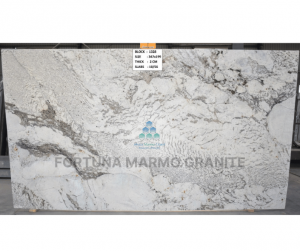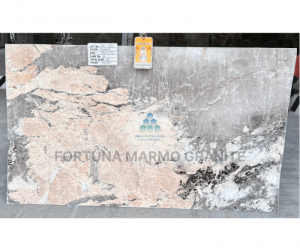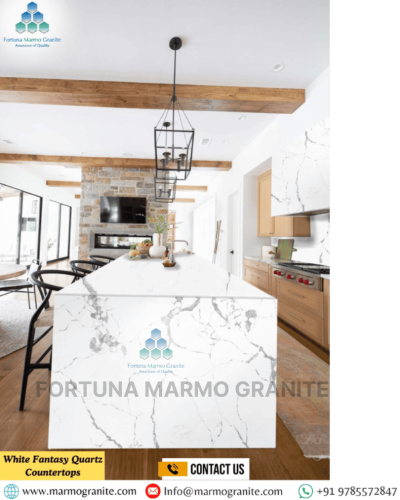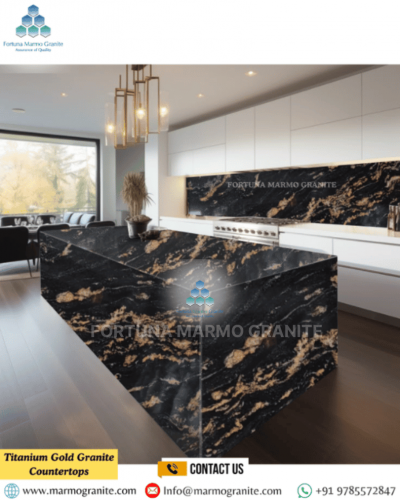Granite Countertops vs Quartz Which is the Best for Your Kitchen?
Granite Countertops vs Quartz have become standout choices in the world of kitchen countertops, each with its own advantages. Choosing Granite Countertops vs Quartz the right material for your kitchen renovation project is important because it affects both the look of your space and how well it functions over time. Granite Countertops vs Quartz countertops both have their own benefits that can meet different needs and preferences Granite Countertops vs Quartz Countertops .
Difference Between Granite Countertops & Quartz Countertops
1. Composition and Appearance
Granite is a natural stone known for its unique patterns created by nature. Each slab of granite has its own distinct veining and colors, ensuring that no two countertops are exactly the same. This uniqueness can add a sense of exclusivity to your kitchen design, making it an appealing choice for those looking for a personalized look. Each granite slab is unique, with distinct veining, specks, and color variations.
On the other hand, quartz is an engineered stone made up of about 93% crushed natural quartz crystals mixed with resins and polymers. This manufacturing process results in a more consistent appearance compared to granite and gives manufacturers the ability to offer a wider range of colors and patterns. For homeowners seeking a cohesive design, quartz offers the benefit of predictability without sacrificing style. This manufacturing process creates a uniform look, unlike granite's natural variations.
Granite & Quartz Factors
2. Durability and Maintenance Requirements
When considering the durability of granite, it's essential to acknowledge its impressive heat resistance. Granite countertops can withstand high temperatures without sustaining damage, making them an excellent choice for avid cooks. However, granite's natural composition does have a downside—its susceptibility to cracking or chipping under significant impact or extreme temperature changes. Despite these factors, granite's durability and heat resistance make it a top choice for many kitchens.
Quartz offers a contrasting durability profile. As an engineered stone, it possesses inherent flexibility that makes it less prone to chipping or cracking compared to granite. Yet, this flexibility comes with a trade-off: quartz countertops have lower heat resistance. Direct exposure to hot cookware can cause damage, prompting users to use trivets or protective pads. This balance of durability and heat sensitivity highlights the importance of proper care for maintaining quartz's longevity and appearance .Quartz is durable and resists wear but is vulnerable to high temperatures.
Maintenance requirements also vary between the two materials:
Granite
Its porous nature necessitates routine sealing to prevent staining and maintain its appearance. Without regular sealing, liquids can penetrate the surface, leading to potential discoloration. Proper sealing boosts granite's durability and keeps its polished, pristine look intact.
Quartz
Thanks to its non-porous composition, quartz is inherently resistant to staining and doesn't require sealing. This characteristic simplifies cleaning and maintenance tasks, making quartz a user-friendly option for busy households.
3. Cost Considerations for Granite and Quartz Countertops
When evaluating the cost of kitchen countertops, comparing granite countertops vs quartz countertops is essential. Granite typically ranges from $40 to $100 per square foot, while quartz generally falls between $50 and $150 per square foot. This pricing variation reflects factors such as quality, rarity, and installation complexity. The cost of installation also plays a role, with both granite and quartz requiring professional handling to ensure proper fitting and finishing. However, the long-term value should also be considered. Granite may need periodic sealing, adding maintenance costs over time, while quartz typically requires less upkeep, making it a low-maintenance option.
Factors Affecting Cost
- Quality: Higher-grade materials often command higher prices. For granite, the uniqueness of patterns and color can drive up costs.
- Rarity: Rare or exotic granite types are more expensive than common varieties. For quartz, custom colors or finishes can increase pricing.
- Installation Complexity: The design intricacy of your countertop layout may require specialized cuts or additional labor, impacting the overall cost.
4. Environmental Impact: Granite vs Quartz Countertops
When it comes to choosing between granite and quartz countertops, environmental considerations play a significant role, especially for eco-conscious homeowners.
The Environmental Impact of Granite Countertops
Granite is a natural stone that requires quarrying—a process that involves extracting large amounts of rock from the earth. While granite is known for its durability and beauty, the quarrying process can have several environmental consequences:
- Landscape Disruption: Quarrying can significantly impact landscapes, altering natural habitats and ecosystems.2.
- Carbon Emissions: Transportation of quarried granite involves heavy machinery and vehicles, leading to increased carbon emissions. Additionally, the energy required for transporting such heavy loads over long distances can have a significant environmental impact.
The Environmental Benefits of Quartz Countertops
Quartz, on the other hand, is considered more sustainable due to its manufacturing process. Here's how quartz countertops contribute to a lower environmental impact:
- Utilization of Stone Byproducts: Quartz manufacturers make use of leftover stone byproducts from other industries, incorporating them into new slabs. This reduces waste and promotes recycling.
- Lower Carbon Footprint: The engineered nature of quartz allows for a lower carbon footprint compared to granite since it requires less energy-intensive extraction processes. Quartz has a lower carbon footprint than granite due to its simpler extraction process.
5. Resale Value Considerations When Choosing Between Granite and Quartz Countertops for Your Kitchen Renovation Project
Resale Value Considerations When Choosing Granite Countertops
Choosing the right countertop material can significantly influence your home's resale value. Granite often holds a higher resale value compared to quartz. This is largely due to its established reputation and timeless appeal among homebuyers. The uniqueness of each granite slab contributes to this allure, making it a desirable feature in any kitchen.
Resale Value Considerations When Choosing Quartz Countertops
However, quartz has its own set of advantages that can appeal to potential buyers. Its consistency in color and pattern, as well as low maintenance requirements, cater to modern lifestyle demands. Buyers looking for hassle-free upkeep may find quartz more appealing.. Unlike granite, which can have natural variations, quartz provides a more predictable aesthetic, making it easier to match with other elements in the home.
Homebuyers frequently express a preference for granite when considering kitchen renovations. This preference is rooted in the perception that granite is a "premium" material, synonymous with luxury and durability. Granite's natural beauty and the prestige associated with natural stones often make it a standout choice. The rich, unique patterns and colors found in granite enhance the visual appeal of any space, while its longevity ensures it remains a worthwhile investment.
Additionally, quartz's low-maintenance nature—requiring no sealing and being highly resistant to stains and scratches—makes it a practical choice for buyers who want beauty without the upkeep. Quartz also offers a wide variety of colors and finishes, giving buyers the flexibility to create a personalized look without compromising on quality. For those who value both functionality and style, quartz presents a perfect balance, offering a long-lasting, hassle-free solution for their home.
Both materials have supporters
Granite
Granite often captures those who appreciate classic aesthetics and high-end materials. Its rich textures, unique veining, and bold colors evoke a sense of opulence and craftsmanship, making it a favorite for traditional and upscale designs.
Quartz
Quartz attracts individuals seeking contemporary styles and ease of care. Whether seeking the classic charm of granite or the modern convenience of quartz, both stones provide distinct advantages to suit different tastes and lifestyles.
Granite

Granite is a classic, natural stone that combines unmatched durability with stunning aesthetics, making it a top choice for both residential and commercial spaces .G ranite's unique veining and rich colors make each slab one-of-a-kind, adding luxury to kitchens, bathrooms, and outdoor spaces.
Quartz

Quartz is a versatile and low-maintenance engineered stone that offers both beauty and practicality. Made by combining natural quartz crystals with resins and polymers, quartz provides the durability of stone with the consistency of a manufactured surface, making it an ideal choice for modern interiors.



